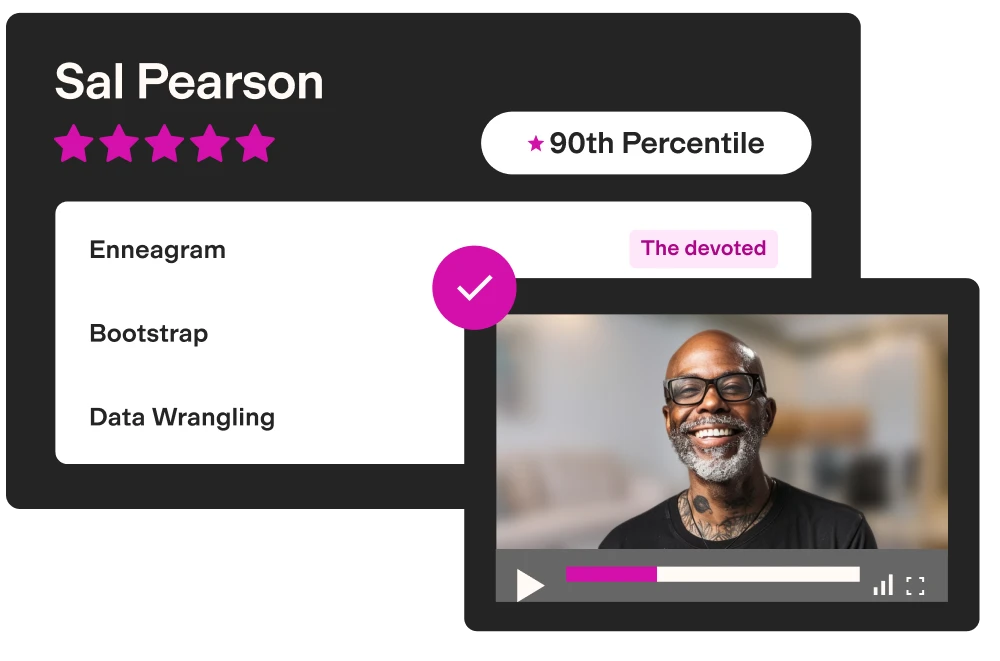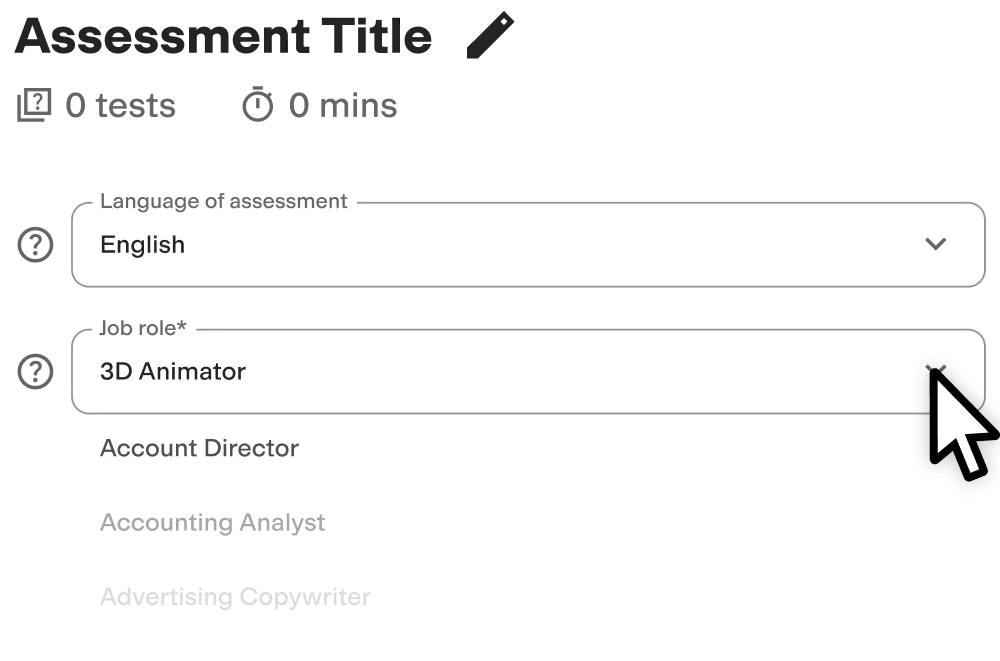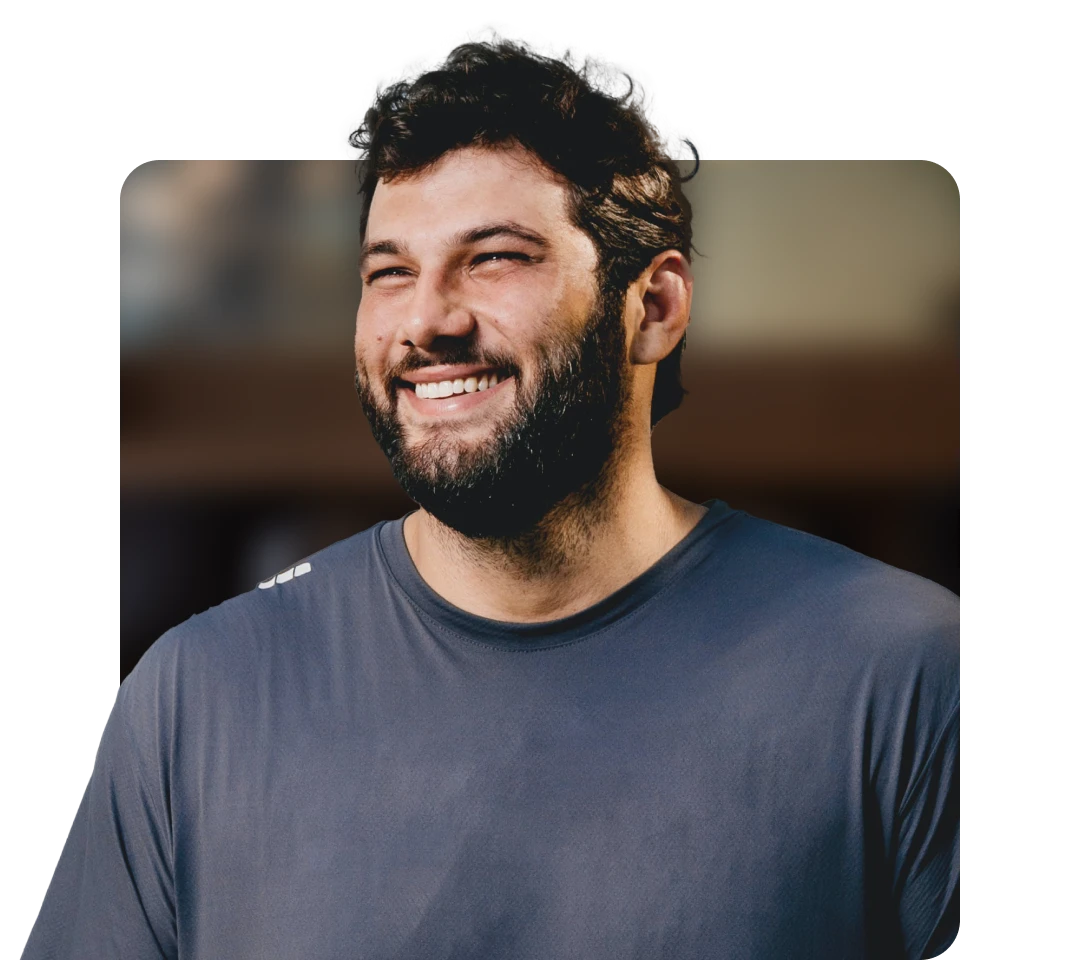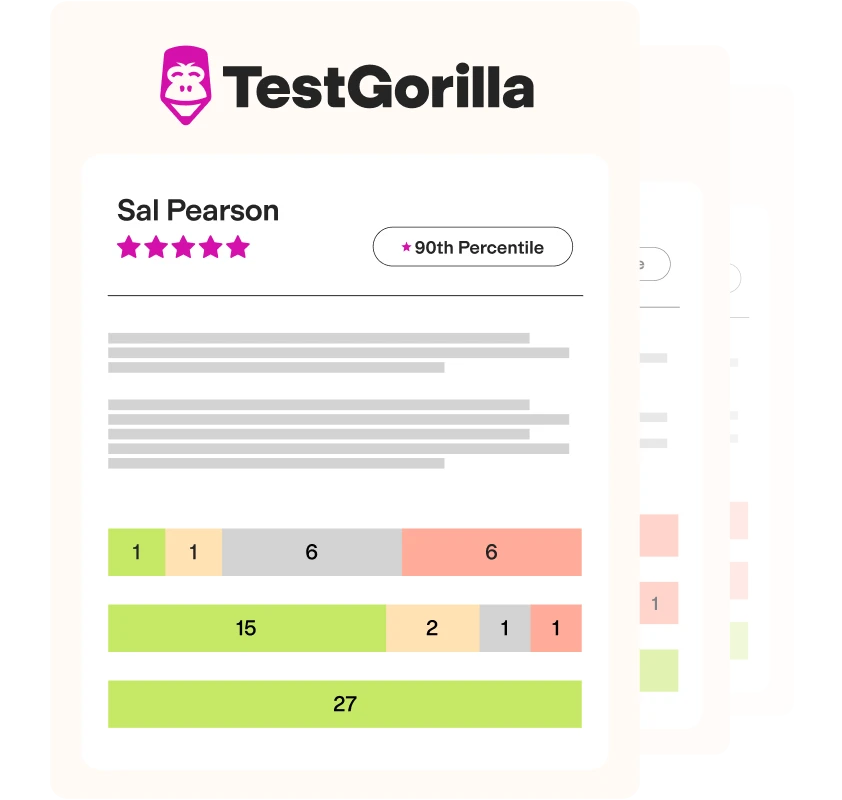Big 5 (OCEAN) Personality test
Summary of the Big 5 (OCEAN) Personality test
This Big 5 (OCEAN) Personality test provides insights into a candidate’s behavior, how they relate to others, and their primary strengths. The test evaluates applicants on five overarching dimensions of personality, which are behind the OCEAN acronym:
Openness
Conscientiousness
Extroversion
Agreeableness
Neuroticism
Use the Big 5 (OCEAN) test to hire
All job roles. The OCEAN Personality test is a reliable tool for understanding the personalities of candidates and team members. These insights into personality traits enhance working relationships, development, and communication
You can use this test for free when you sign up for a free plan.
About the Big 5 (OCEAN) test
The Big 5 (OCEAN) personality test is a theory of personality based on the framework that five broad traits form the basis of different personalities. This five-factor model of personality was shaped by various human behavior analysts from the 1960s to the 1990s.
The OCEAN personality test evaluates the big five factors on a spectrum:
Openness: Gauges a person’s openness to experiences from inventive and curious to consistent and cautious
Conscientiousness: Assesses a candidate’s conscientiousness from efficient and organized to extravagant and careless
Extraversion: Evaluates applicants’ extroversion from outgoing and energetic to solitary and reserved (introversion)
Agreeableness: Measures a person’s agreeableness from friendly and compassionate to challenging and callous
Neuroticism: Calculates neuroticism from sensitive and nervous to resilient and confident
The Big 5 personality test is a self-evaluation that asks candidates to score various statements on a scale from 1 (very inaccurate) to 5 (very accurate). These answers determine where people sit on the spectrum for each of the five personality factors. For example, it can show you which candidates are introverts and which are extroverts.
We recommend using our Big 5 (OCEAN) test for hiring and for helping existing staff develop because it helps you understand a person’s strengths, opportunities for improvement, and how they interact with others.
You can gain unlimited use of our Big 5 (OCEAN) personality test with our Free forever plan, so you can browse through sample questions, understand the test, and start evaluating candidates today.
The test is made by a subject-matter expert
TestGorilla’s tests are created by subject matter experts. We assess potential subject-matter experts based on their knowledge, ability, and reputation.Before being published, each test is peer-reviewed by another expert, then calibrated using hundreds of test takers with relevant experience in the subject.
Our feedback mechanisms and unique algorithms allow our subject-matter experts to constantly improve their tests.
Margarida R.
Margarida is a clinical psychologist and psychometrist. Her work has focused on studying and conducting psychological evaluations on different populations across a variety of clinical settings, from pain clinics and hospitals in Chicago to state prisons in Los Angeles.
Two years ago, Margarida opened her own private practice in her hometown of Lisbon, Portugal, where she now dedicates her time to developing new psychological tests, conducting research, and doing therapy in person and online.
Use TestGorilla to hire the best faster, easier and bias-free
Our screening tests identify the best candidates and make your hiring decisions faster, easier, and bias-free.
Create high-quality assessments, fast
Building assessments is a breeze with TestGorilla. Get started with these simple steps.
What is the Big 5 (OCEAN) Personality test?
The Big 5 personality assessment gauges candidates based on five different human personality psychology factors on a diverse spectrum. For example, the “Openness” factor ranges from routine-oriented people to adaptable, curious people.
Most candidates sit between the two extremes, so each person has a unique blend of Big 5 personality traits that enhance different job roles and teams.
How does the Big 5 personality test work?
On each question in the Big 5 personality types test, candidates are asked to score statements on a scale of 1 (very inaccurate) to 5 (very accurate), where 3 is neutral. Their answers place them in one of five possible positions on the spectrum of each factor.
After the assessment, the results page describes the test taker’s personality, strengths, and areas of improvement.
Let’s take a look at the five factors in the Big 5 (OCEAN) personality test:
Factor | Description |
Openness | Openness shows how open a candidate is to new experiences and the unfamiliar. A high score shows an experimental and innovative person, possibly an extrovert, while low scores correlate with focus and pragmatism. |
Conscientiousness | Conscientiousness represents the reliability and organization of candidates. A low score indicates a risk-taker, while high conscientiousness shows discipline. |
Extroversion | Extroversion measures how sociable and talkative job seekers are, with high scores meaning more outgoing, people-centric candidates and low scores meaning they’re quieter and calmer. |
Agreeableness | Agreeableness shows if a candidate gets along well with others and solves people’s problems. High-scoring applicants are altruistic and affectionate but may be naive while low-scoring test takers are competitive and blunt but know how to speak up for themselves. |
Neuroticism | Neuroticism relates to a person’s emotional vulnerability. Candidates with high scores may need calmer working conditions for their wellbeing, while those who score low more easily adapt to change and stress in social settings. |
Why is the Big 5 (OCEAN) personality test important to employers?
The OCEAN personality test provides insights into the traits, behaviors, strengths, and opportunities for improvement for applicants and current employees. Here are a few ways this test can enhance your people strategy:
Learn how your candidates’ personalities and traits align with your company’s values
Understand how to adjust the recruitment process to suit candidates’ needs
Use the results as a basis for future training opportunities
Evaluate existing team dynamics for development and growth purposes
Improve empathy and understanding all around
You can use the Big Five personality traits test (OCEAN) to find the ideal personality type for an open role. For example, someone with low neuroticism in social situations is ideal for a frequently shifting role in software development.
Another example is finding a candidate with low extroversion for an isolated role, like a technical writer, to elevate their performance and reduce the risk of loneliness.
EXOGROUP, a company that provides digital media services, uses personality tests in its hiring process to find the ideal personalities and attitudes for customer-facing sales roles.
What job roles can you hire with our Big 5 (OCEAN) Personality test?
You can test Big 5 personality profiles when hiring for any job role. This personality test helps you understand people and build effective strategies to work and communicate with them, so it’s useful for every position.
Here are a few diverse examples:
HR professionals: The OCEAN personality test helps you find compassionate, agreeable people who work well with others and are organized and able to handle complex administrative tasks.
Account managers: The Big 5 (OCEAN) test helps you discover extroverted, people-oriented candidates who rely on their resilience and confidence to negotiate and mediate client conversations with assertiveness.
Technical writers: This test enables you to find motivated applicants with self-discipline who don’t mind long stretches of isolated work, preferring to focus on deep work without feeling lonely.
Accountants: This test enables you to find a steady, dedicated, conscientious person who sticks to strict rules and uses logical thinking, leading to reliable success.
Negotiators: The Big Five personality test lets you find a negotiator who isn’t naive and knows when to challenge
How to combine personality tests with skills-based hiring
You shouldn’t base hiring decisions on the results of the OCEAN test alone. Looking only at personality traits doesn’t tell you enough and leads to biased hiring.
Adopt a skills-based hiring process to get as much value as possible from the Big 5 (OCEAN) Personality test. Choose up to five relevant tests to build one holistic talent assessment and gain a well-rounded picture of applicants’ skill sets and personalities.
The OCEAN model shows you which work environments they prefer and how you can best interview them; the other tests go beyond personality research and show you their role-specific aptitude and soft skills.
Create a multi-measure assessment: 4 tests to pair with the OCEAN Personality test
Use our Big Five inventory to build a successful multi-measure assessment. These assessments combine role-specific, cognitive ability, and personality tests to accurately assess a candidate’s aptitude and how well-suited they are to your company.
Here are four tests to use with our OCEAN Personality test to create an effective talent assessment:
Problem Solving test: Gauge how a candidate analyzes issues and finds solutions. Combining this with the Big 5 test shows how well people adapt to and solve challenges.
Time Management test: Measure job seekers’ ability to prioritize and plan tasks. Use it with the OCEAN test to discover how organized, disciplined, and goal-oriented your applicants are.
Digital Agility test: Evaluate how successfully candidates adapt to digital challenges. Combined with the Big Five model, it discovers how workers react to new technology and stay agile in changing environments.
Leadership & People Management test: Assess your applicants’ influence and guidance skills. Use it with the Big Five test to find reliable, people-centric leaders.
Note: We haven’t included any role-specific skills tests here because they depend on the position you’re hiring for. However, we highly recommend you add at least one in your five-test assessment to ensure your candidates possess the right skills for the job.
FAQs
View a sample report
The Big 5 (OCEAN) test will be included in a PDF report along with the other tests from your assessment. You can easily download and share this report with colleagues and candidates.







